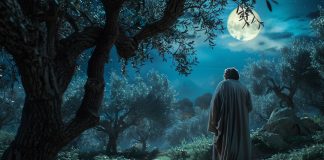The opposite of love is not hatred (part 1)
For centuries, the sacrifice of God the Son and the divine plan for man’s salvation have generated several dilemmas and raised more questions than we could imagine. And the answers that have been found have revealed more implications of the cross than we used to believe, whether we are Christians or non-Christians, believers or skeptics.
What did Jesus believe about hell?
In Dante Aligheri's Divine Comedy, written in the early 14th century, hell is described as a "city of woe" and a place of "eternal pain"—metaphors of endless suffering.
Autumn also has its spring
Sometimes, life is a succession of questions that God seems to ignore—until, at the right time, His silence provides an answer that is better than any answer in the world.
COVID-19: Recurrent revelations
Any large-scale phenomenon, such as a pandemic, activates our instinct to preserve our state of being—especially when we feel like we are losing it.
COVID-19: Life in the shadow of death
I am not an expert on the phenomenon of death. But like all of us, I have to live in its shadow, and watch the restlessness and greed it causes. The same gloomy reports that circle the planet also reach me. I feel especially conscious of this as COVID-19 claims its first victims in my country.
Uncertain certainties and the fragility of reason
“For a long time I supposed that somewhere in the university, there were really clever people whom I had not yet met, and whom I should at once recognise as my intellectual superiors, but during my second year, I discovered that I already knew all the cleverest people in the university. This was a disappointment to me, but at the same time gave...
The death of Death: Easter and eternal life
Ultra-rich Silicon Valley tech magnate Bryan Johnson has been regularly having transfusions of his own son’s blood plasma in an effort to live longer. The treatments are expensive and are essentially still being trialled.
Turning our backs on Infinity
It is known that many Jews, some even contemporaries of Jesus, claimed to be the expected Messiah. Of these, only Jesus of Nazareth is the name that has endured over time. Still, too few of His contemporaries[1] recognized and accepted Him as the Messiah, and this reality raises a question: why was Jesus rejected?
Reasons for the cross of Christ: why was His sacrifice needed?
The name of Jesus brings to mind the gift of the incarnate Godhead—their supernatural acts, astonishing wisdom, incomparable goodness, unmitigated innocence, supreme sacrifice, offered salvation, and our only certain hope.
Gethsemane, the garden of the divine sighs
As soon as the tourists leave the land of the silent agony of Gethsemane, their lives return to normal, and the garden where the Son of God sobbed in indescribable pain, misunderstood and unsupported even by His closest disciples, sinks back into oblivion.
God is love and that makes us eligible, as imperfect as we may be
We have trouble understanding and accepting the image of a loving God, as we have grown too familiar with the type of love that offers itself only when it finds in a person the qualities that make them easy to love.
The wisdom that comes from above
“If anyone, then, knows the good they ought to do and doesn’t do it, it is sin for them” (James 4:17). Yet Jesus asks, “Do you want to get well?” This question highlights that good cannot be done just any way or against a person’s will. Jesus shows that human will must be respected before God’s power can address sickness.
Strong prayers to the hidden God
No one has ever seen God, but the One who knew Him before He was born on this earth taught us all to address Him in prayer.
The portrait of Jesus (III): Jesus, the Judge
In biblical times, those holding trials between people were called judges (Exodus 18: 21-26), just as they are today. Some more prominent judges, in the centuries between Joshua’s death and the establishment of the kingdom of Israel, were noble leaders who led various Jewish tribes in battle against invaders. In this capacity, they were liberators of their people. Any just judge is a...
Why did Jesus have to die for us?
Taken as a whole, this question sounds like a painful cry, springing forth from the depths of the human being, in the midst of the darkness of uncertainty and doubt. This question, however, consists of multiple sub-questions. We will address these essential questions that will open our minds to the light of the teachings of Him who holds all knowledge and truth.


























